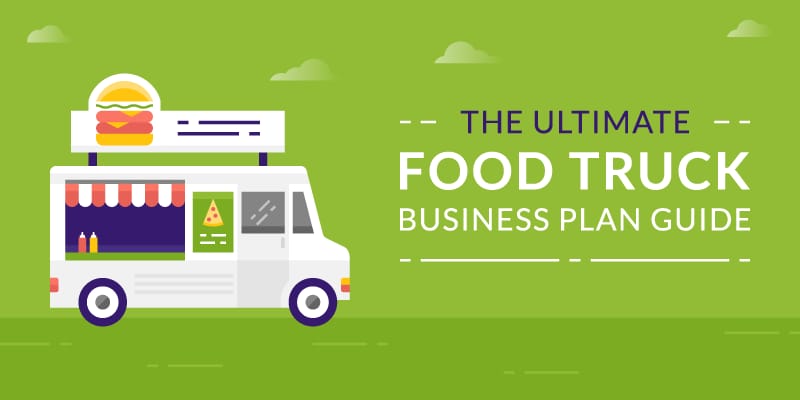How To Start A Food Truck Business 2023 | Food Truck Business Plan, Rules And Regulation
Food Trucks are gaining popularity as newcomers to the industry consider how to bring an idea to life on a budget. It’s important to make a business plan that takes into account the challenges of the mobile food vending industry because they can drive up costs more than expected. Since a food truck’s bottom line is impacted by day-to-day fluctuations, knowing where the demand will be crucial.
Entrepreneurs who are interested in starting a food truck business should read this article. It will show how to start a food truck business and explain why it might be the best way to start a new restaurant. We will try to answer each Question which come in your Mind when you Start Your Food Truck Business.
- What is meant by Food Truck?
- What are the different Food Truck Funding Options?
- How to find Food Trucks for sale?
- How much Initial Investment is required to Start Food Truck Business?
- What are the Benefits of Food Truck Business? What challenges are Involved?
- How to develop Food Truck Business Plan?
- What are Rules and Regulations for a Food Truck Business?
What is a Food Truck?
A food truck is a mobile vending machine that has a kitchen where food can be made and served. Because it costs a lot more to open a restaurant than it does to operate a food truck, many entrepreneurs choose to do so. They have been springing up across urban and rural districts in the US and are turning out to be progressively well known.
Even though there isn’t a lot of demand for established storefronts, rent and security deposits are still expensive in cities. This is before you start branding the space where you sell food.
Food Truck Business Plan
A business plan should be developed and maintained by every owner of a food truck. When you make the decision that you want to start a food truck business, it ought to be the first concrete action you take.
- A quick synopsis: An executive summary is your company’s introduction. It ought to present a summary of your business plan.
- Description of the firm: This section should explain who you are and what makes your business unique.
- Market research: In this section, you talk about who your target customers are, what they want, where they live, and how you’ll get them to come to your business. It’s important to know who your neighbors are who sell the same food or target the same demographic.
- Management and organization: Then, you need to detail how your business is coordinated as a legitimate business substance.
- Product or service line: The food you serve is your primary product as a food truck business. Describe your menu and your strategy for acquiring new customers.
- Sales and marketing: You should elaborate on your marketing strategies in this section. Make sense of how you intend to get the news out about your business, recognize all showcasing stages.
- Request for funding: Determine how much cash you are requesting and portray, in fine detail, how each dollar will be spent to develop the business.
- Monetary projections: While it tends to be challenging to detail monetary projections, particularly for new organizations without a monetary history, compute how much cash your business will make throughout the following three to five years.
- Appendix: Although it is not required by every business plan, but a good place to include any additional information that might find useful such as producing photos or letters of recommendation.
Food Truck Business Model

Different Food Truck Funding Options
When starting a food truck company or a business, one of the most difficult obstacles you may face is obtaining funding. Following are some ways that will help to Start one business with little investment.
- Negotiate a lease or rental agreement with someone who already owns a food truck.
- Start out with a used, cheap cart or trailer.
- Begin selling at a farmer’s market, fair corner or pop up.
- Consider operating a food truck for the owner of a successful restaurant.
- Look for sponsors if your truck idea involves serving the public or benefiting the community.
- You might meet all requirements for a credit advance in the event that you as of now have an installment processor.
Start-up Cost For A Food Truck Business
A food truck company’s startup costs are determined by a number of factors. The cost of starting a food truck business can range anywhere from $28,000 to $114,000, but the exact amount needed to get started varies greatly from person to person. Upon launch, additional startup costs can be anticipated, including:
- Insurance: $1,000 to $4,000 per year
- Initial monthly product inventory: $1,000 to $2,500
- Payment processing: $200 to $1,000
- Commissary fees: $200 to $1,200
- Permits and licenses: $100 to $7500
Finding Food Trucks For Sale
There are many resources to find food truck that includes:
- Local online classifieds: A good option as used trucks are less expensive and simple to inspect if they are local.
- National online classifieds: This will open much more stock however get whatever number subtleties and relevant data about the truck from the merchant as could reasonably be expected since you undoubtedly won’t see it face to face before pickup.
- New custom trucks: While this is the most expensive option, it is the best way to ensure that your truck is up to code and standards and that it can be customized to your specifications.
- Leasing and franchising:
Food Truck Business Benefits & Challenges
Following are the advantages one can get after initiating a Food Truck Business.
- Business Ownership
- Freedom
- Mobility
- Kitchen simulation
Challenges: On the other hand, along with benefits, the challenges one has to face includes:
- Time
- Competition and market
- Ordinances and zoning
- Foot traffic
Rules & Regulations For A Food Truck Business
Consider the necessary permits and regulations in the various locations you are considering for your business location.
- Food safety
- Seller’s permit
- Zoning and parking
- Vehicle license
- Fire certificates
- Employee identification number (EIN)
- Business permits and licenses
Conclusion
Your objective remains the same, but with a twist: every day, you’ll be traveling your kitchen to your customers. You can try out your lifelong dream of selling sweet pierogies or see if pizza slices delivered from trucks are scalable. That can be exciting, but it can also be draining on your body, and you’ll have to deal with that every day you work.
The only way to quickly expand your customer base to accommodate fluctuating demand and sudden expenditures is to capitalize on your existing clientele by providing food of the highest possible quality. When you know that a particular weekend will see a significant drop in foot traffic, catering orders are a great way to also bring in additional revenue.
Suggested Posts
- https://pos.toasttab.com/blog/on-the-line/food-truck-industry-trends-and-statistics
- How to Choose the Best Legal Structure for Your Business
Food Truck Business Related FAQS
How much do food trucks make?
Food Trucks make an average of $250,000-$500,000 annually, or $20,000 – $42,000 monthly.
What are Possible Food Truck Mobile POS Options?
– Cash box and cash-only sales
– Cash box + mobile card processor
– Cash box + POS system + mobile processing
All these options have different advantages, disadvantages & on going costs.
What are different Food Truck Equipements?
1. Ovens
2. Ranges, Grills, and Ventilation
3. Microwaves
4. Freezers and refrigerators
5. Food prep surfaces
6. Food prep equipment
7. Sinks
8. Restaurant point of sale system
9. Kitchen Display System (KDS)


